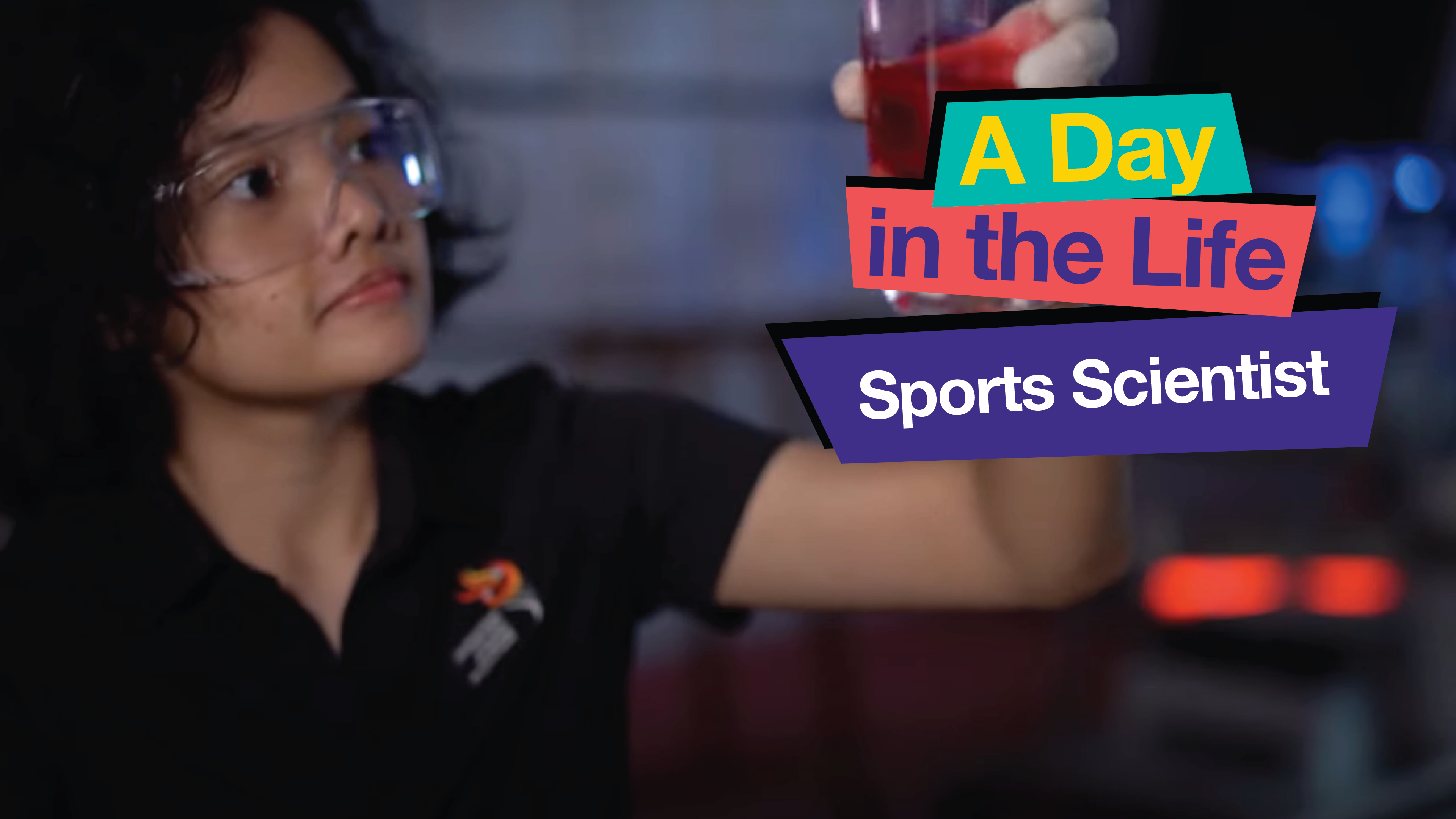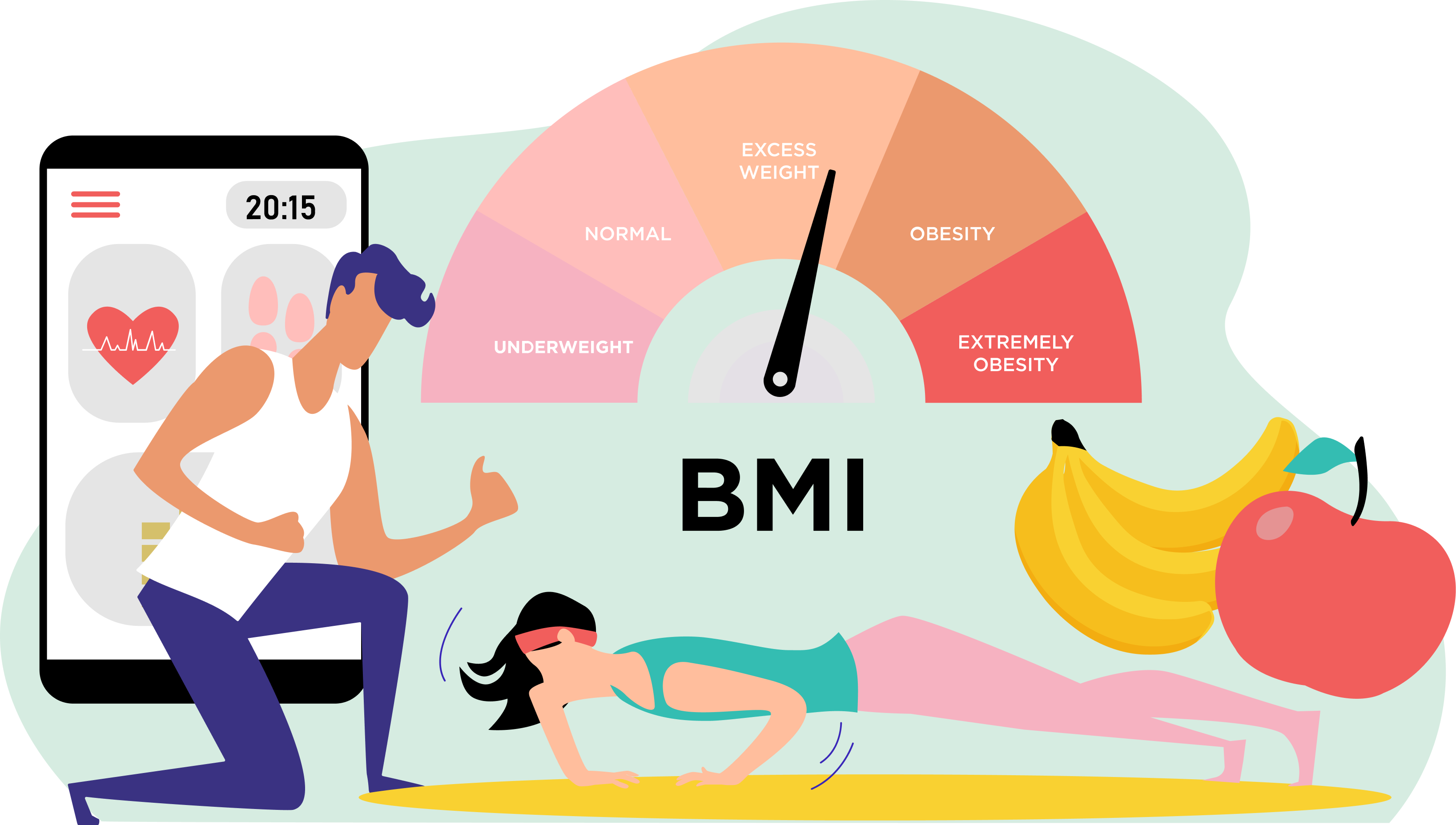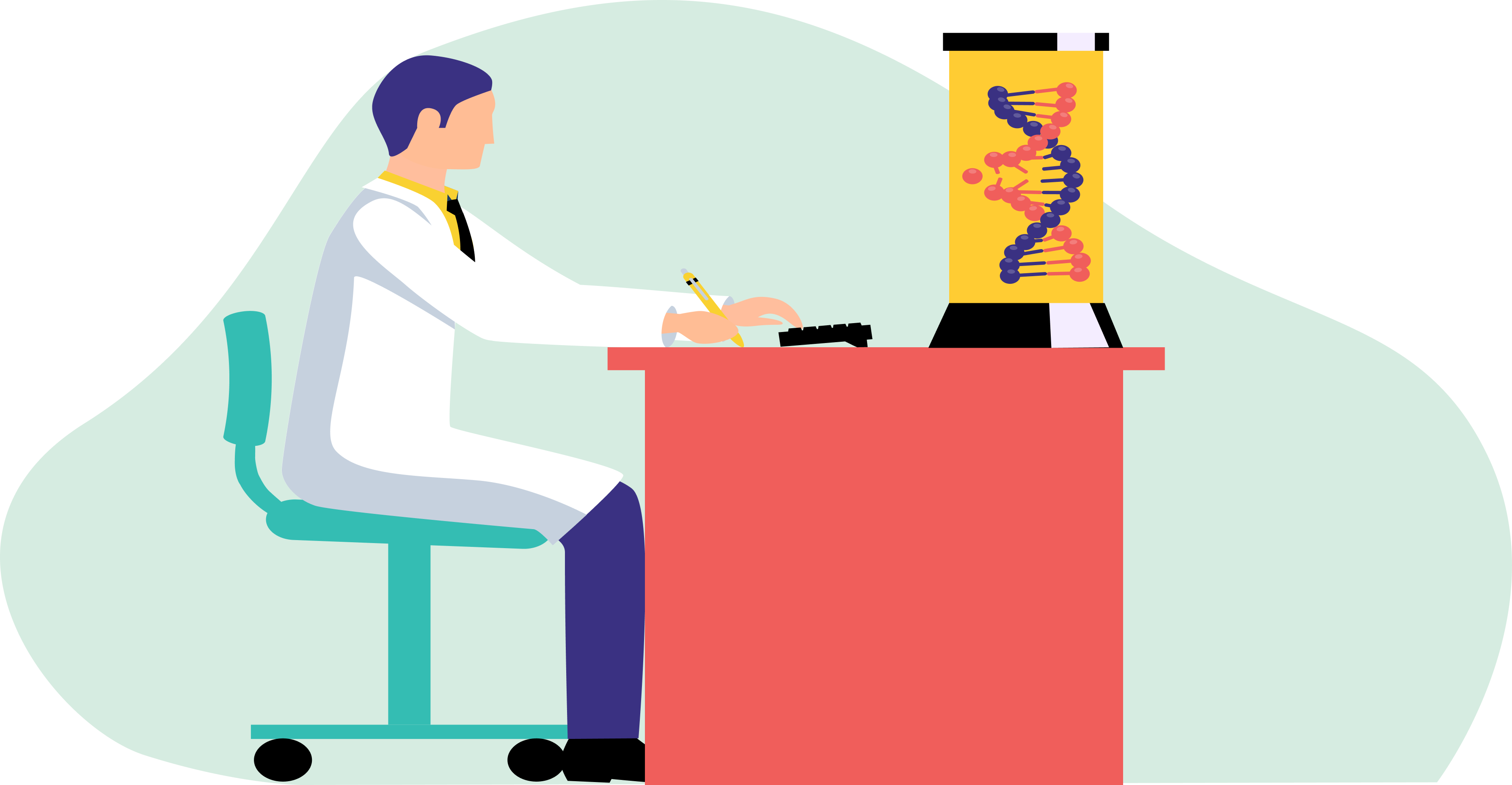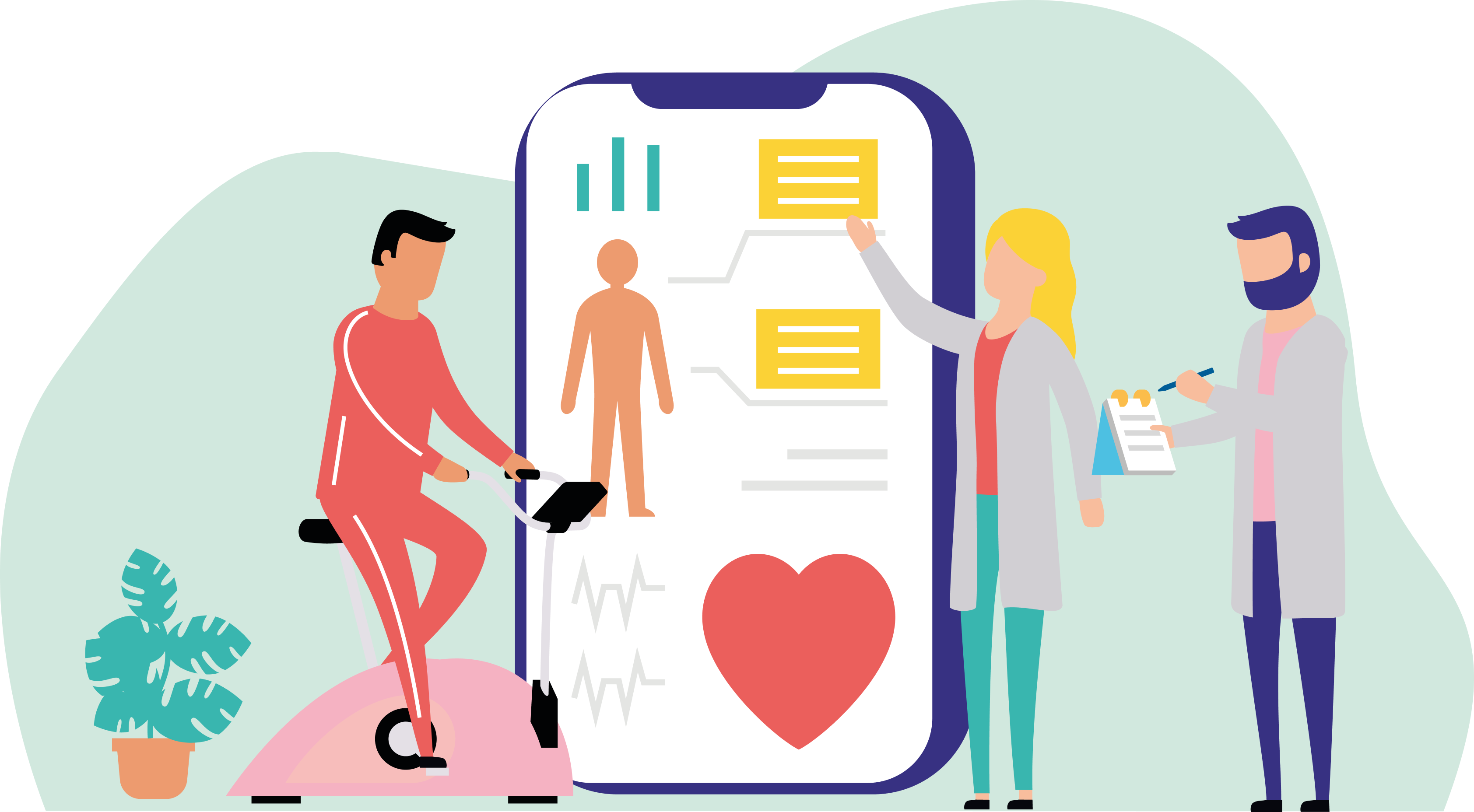
Sports Scientists utilise Sports Science to optimise athletes' performances to achieve the Olympic motto of higher, faster, stronger. They push the boundaries of human athletic capabilities.
Sports Scientist Job Description
- Work with Coaches and Athletes to develop a holistic training plan to optimise the daily training environment so Athletes can be at their peaks during competitions.
- Undertake research and development to create innovative solutions to help Athletes train and compete better.
- Share information and knowledge learnt/created with the Sports Science ecosystem by teaching Sports Science to Coaches or designing course curricula.
- Assess, construct and obtain equipment best suited for the Athlete’s needs to optimise the Athlete's performance and safety.
Note
Sports Scientists collaborate with other professionals to ensure the Athlete’s well-being is cared for and to optimise their performance on the field.
What you should know about Sport Scientist jobs in Singapore
Nature of Work
As Sports Scientists, you’ll work with Coaches on the ground to support and make scientifically-guided recommendations for Athletes.Key Advice
Attend Sports Science conferences, join professional associations and participate in online forums or Social Media groups dedicated to Sports Science.-
Entry RequirementsEntry Requirements
- Having a diploma or bachelor’s degree in Sports Science or other related courses is ideal.
- It is good to also possess a strong foundation in Biology, Chemistry, Physics and Mathematics as you will need to be able to understand and analyse how the human body works in relation to Sports Science.
-
Possible PathwayPossible Pathway
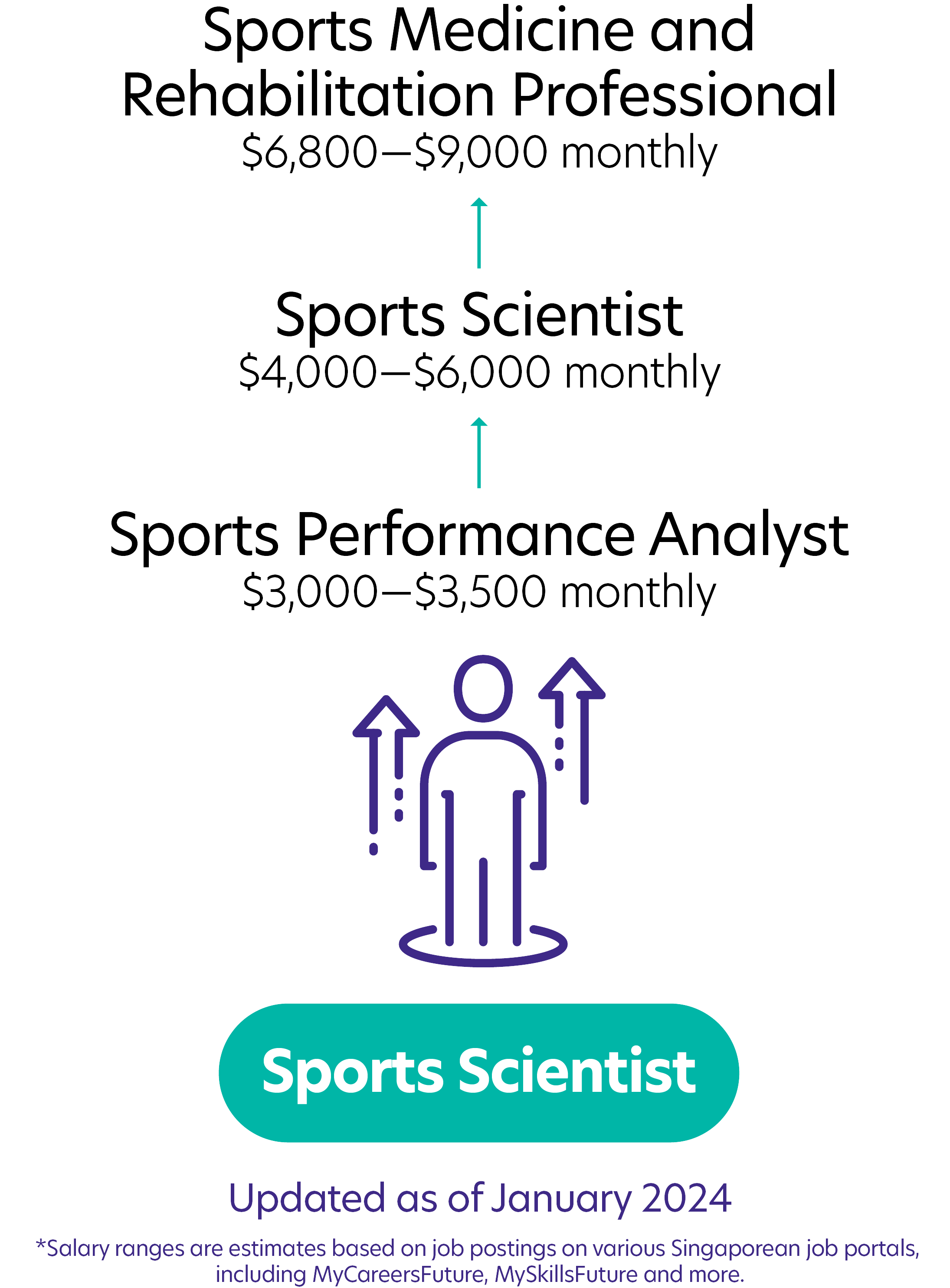
Skills you need to pursue a Sports Scientist career in Singapore
Research Skills
To design, conduct, and analyse Scientific studies effectively using specialised software and methodologies.Project Management
Often involves coordination of resources and time management to ensure successful outcomes.Teaching Skills
The ability to convey complex concepts clearly and engagingly.Teamwork
Collaborating effectively with others and the ability to work in diverse groups to achieve common goals.Adaptability
Being able to adjust quickly to new information, changing environments, or unexpected challenges.Cultural Awareness
Involves understanding and respecting diverse cultural perspectives in sports and exercise practices.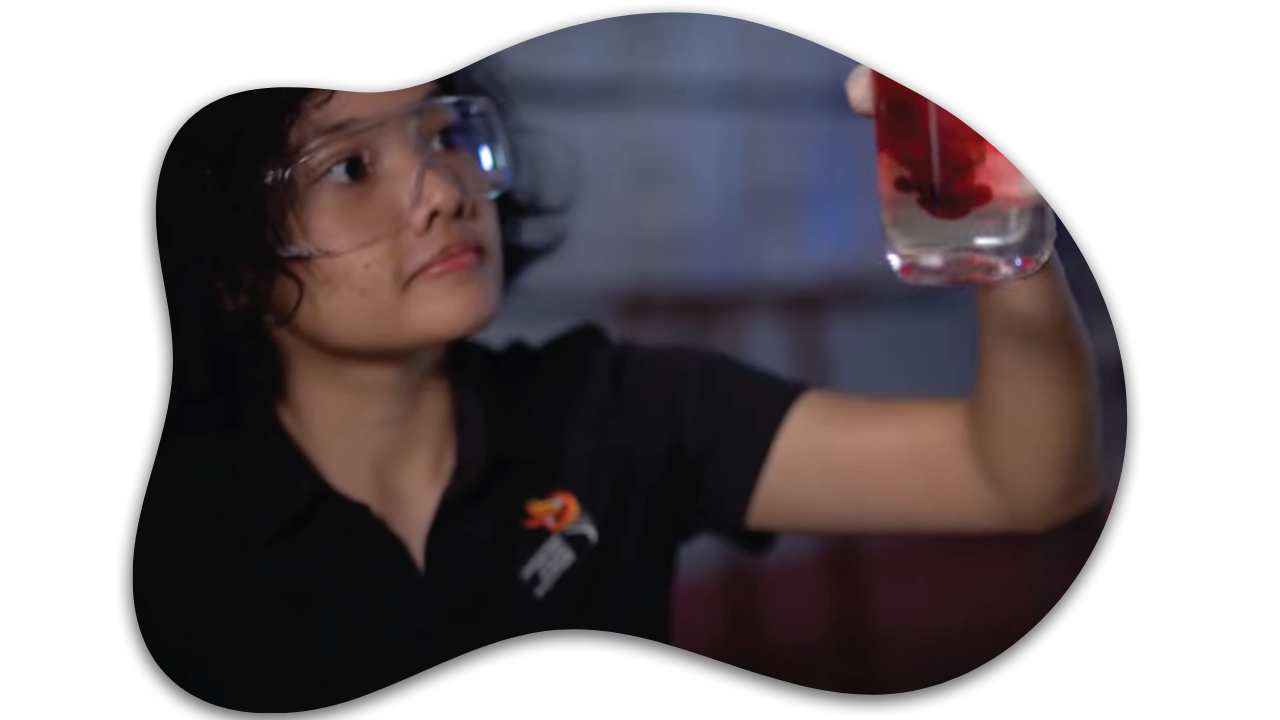
“Our focus is to help them attain consistency and avoid distractions that impact their performance.”
Adilah, Sports Scientist
Related Job Roles
Explore Other Programmes
Browse AllYou have bookmarked your first item!
Find it in My Discoveries with insights on your interests!
